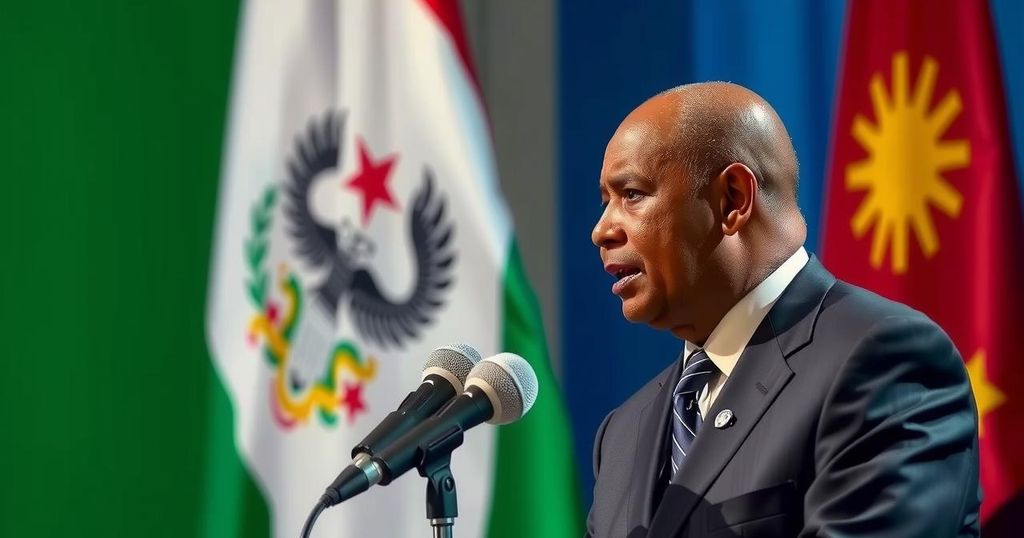Sudan’s President Omar al-Bashir has canceled his trip to Jakarta for the Asia-African leaders conference, prioritizing domestic post-election duties. This would have been his first trip outside Africa or the Middle East in four years, as he faces an ICC arrest warrant for war crimes. His absence at the summit is welcomed by rights groups who view it as a reinforcement of his fugitive status.
Sudan’s President Omar Hassan al-Bashir has canceled his attendance at the Asia-African leaders conference in Jakarta, Indonesia, which was slated to begin on Wednesday. This would have marked his first overseas visit outside of Africa and the Middle East in nearly four years. A spokesperson from the foreign ministry, Ali al-Sadiq, indicated that the president’s focus on post-election operations led to the decision to remain in Sudan. Consequently, Sudan’s foreign minister will head the delegation to the summit instead.
The decision to cancel this trip follows protests from human rights groups that sought al-Bashir’s arrest due to an International Criminal Court (ICC) arrest warrant issued against him in 2009, accusing him of war crimes and crimes against humanity stemming from the Darfur conflict. Given that Indonesia is not a member of the ICC, the controversy surrounding the president’s potential arrest intensified with the announcement of his planned visit.
Rights advocates viewed the cancellation positively, interpreting it as a reinforcement of al-Bashir’s status as a fugitive from international justice. Elise Keppler, from Human Rights Watch, remarked that this situation has limited al-Bashir’s travel options. Historically, al-Bashir has traveled primarily to Arab and African nations, where he has evaded arrest, thus avoiding accountability for the charges against him by international courts. He has not ventured outside the region since his visit to China in June 2011, although he has made several trips to countries that have not complied with the ICC’s requests for his arrest.
The context of President Omar Hassan al-Bashir’s cancellation of his trip to Indonesia centers on his contentious status as a leader wanted by the ICC for serious allegations including war crimes in the Darfur region. The ICC’s arrest warrant, issued in 2009, complicates any international travel that al-Bashir attempts outside the safety of countries not aligned with the ICC’s mandates. His previous avoidance of arrest upon traveling to compliant states underlines the significant diplomatic and legal challenges he faces as an indicted leader. International human rights groups remain vigilant in spotlighting these issues to promote accountability and justice for the victims of his regime’s actions.
In conclusion, the abrupt cancellation of President al-Bashir’s attendance at the Asia-African conference underscores the complexity of his international travel due to ongoing ICC proceedings against him. With a focus on domestic post-election matters cited as the reason for his decision to remain in Sudan, this development also reflects the persistent efforts of human rights organizations to illuminate the obstacles al-Bashir encounters as an internationally wanted figure. This incident serves as a reminder of the broader implications concerning accountability and justice within international relations.
Original Source: www.aljazeera.com






